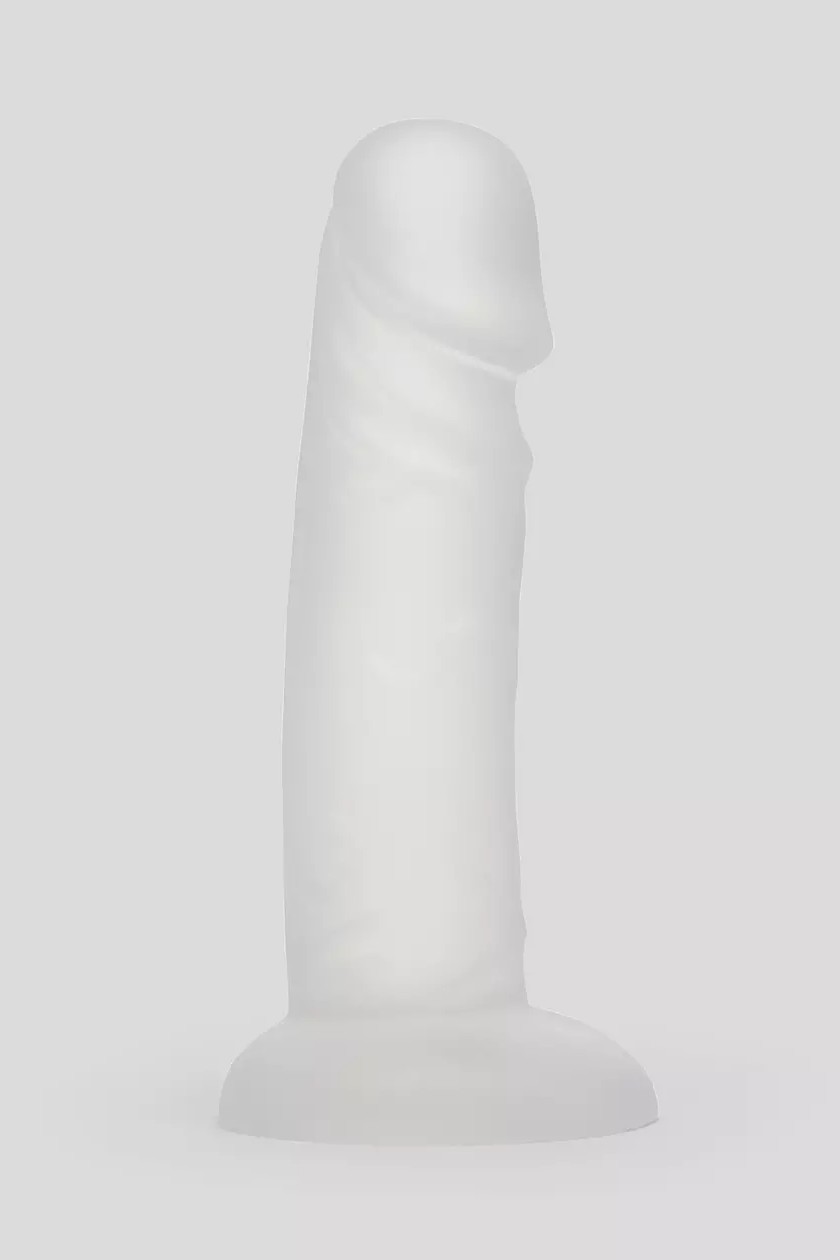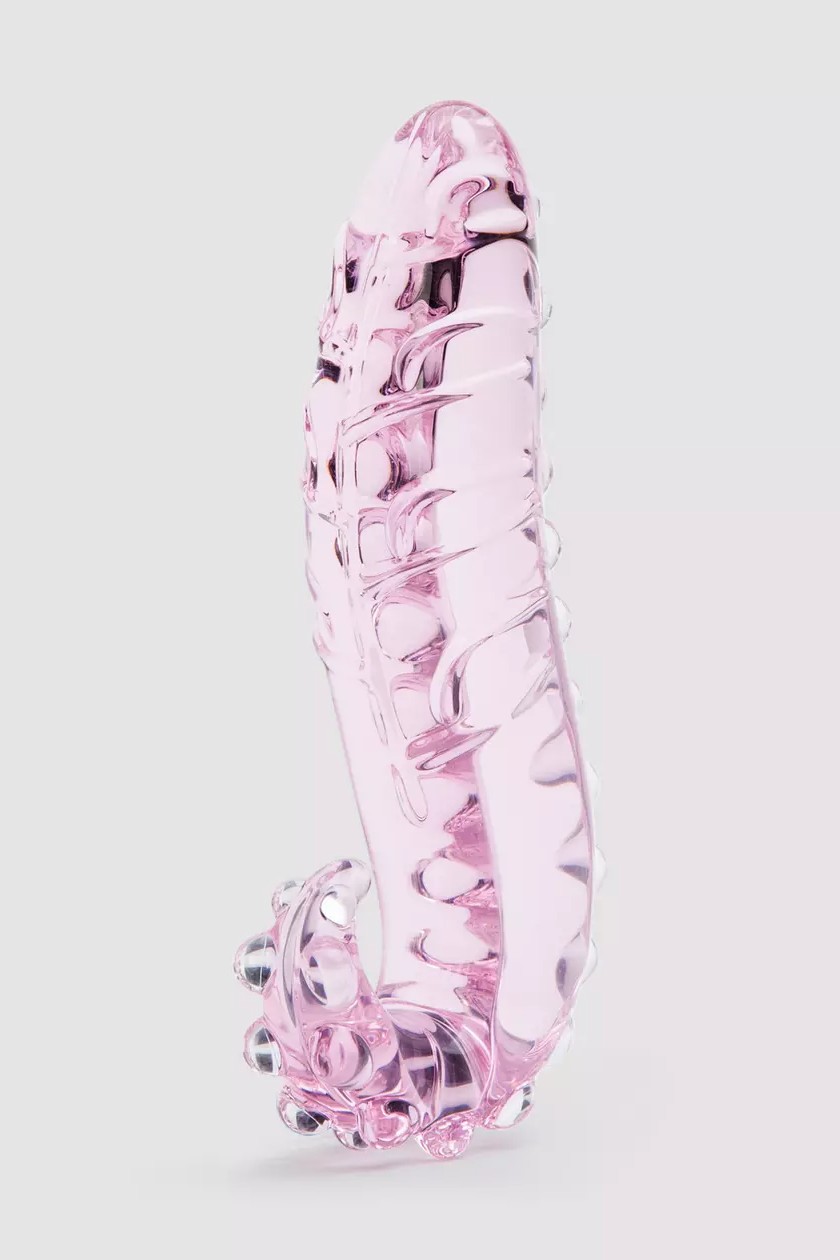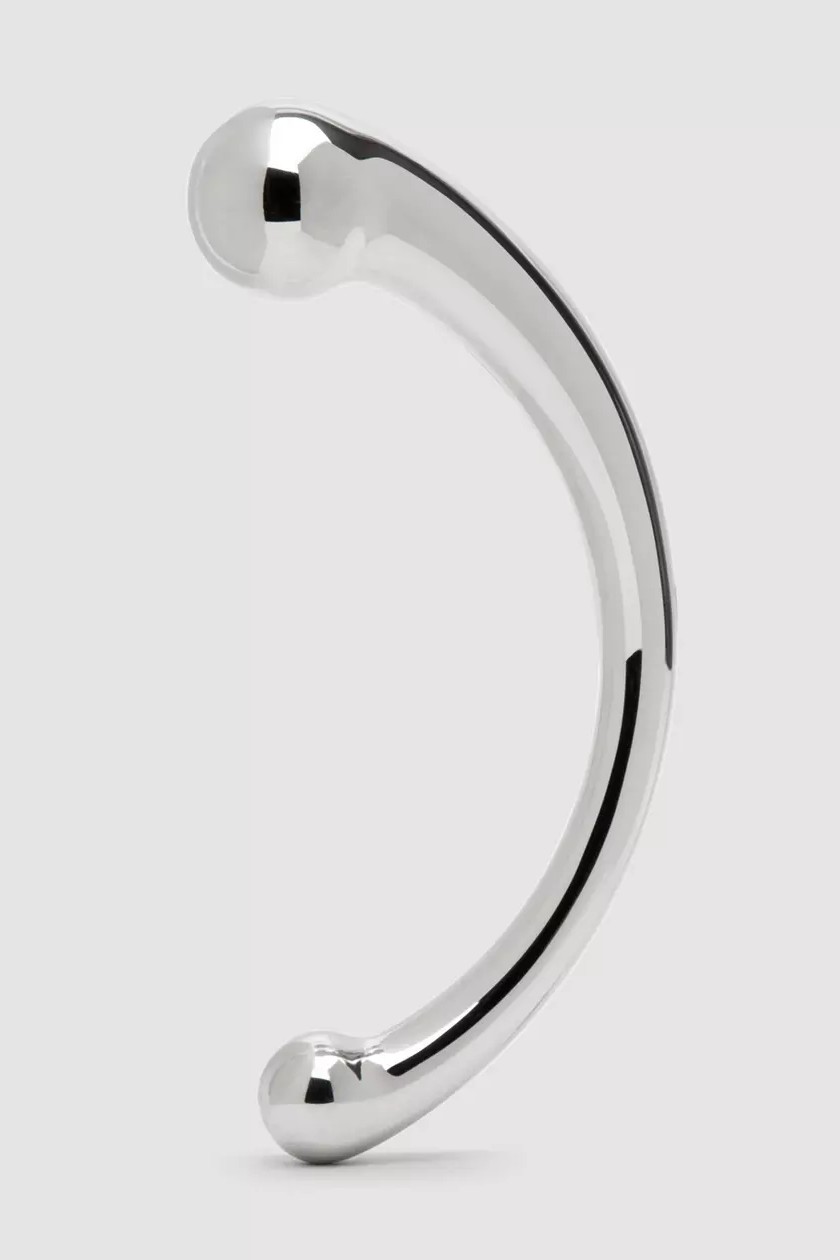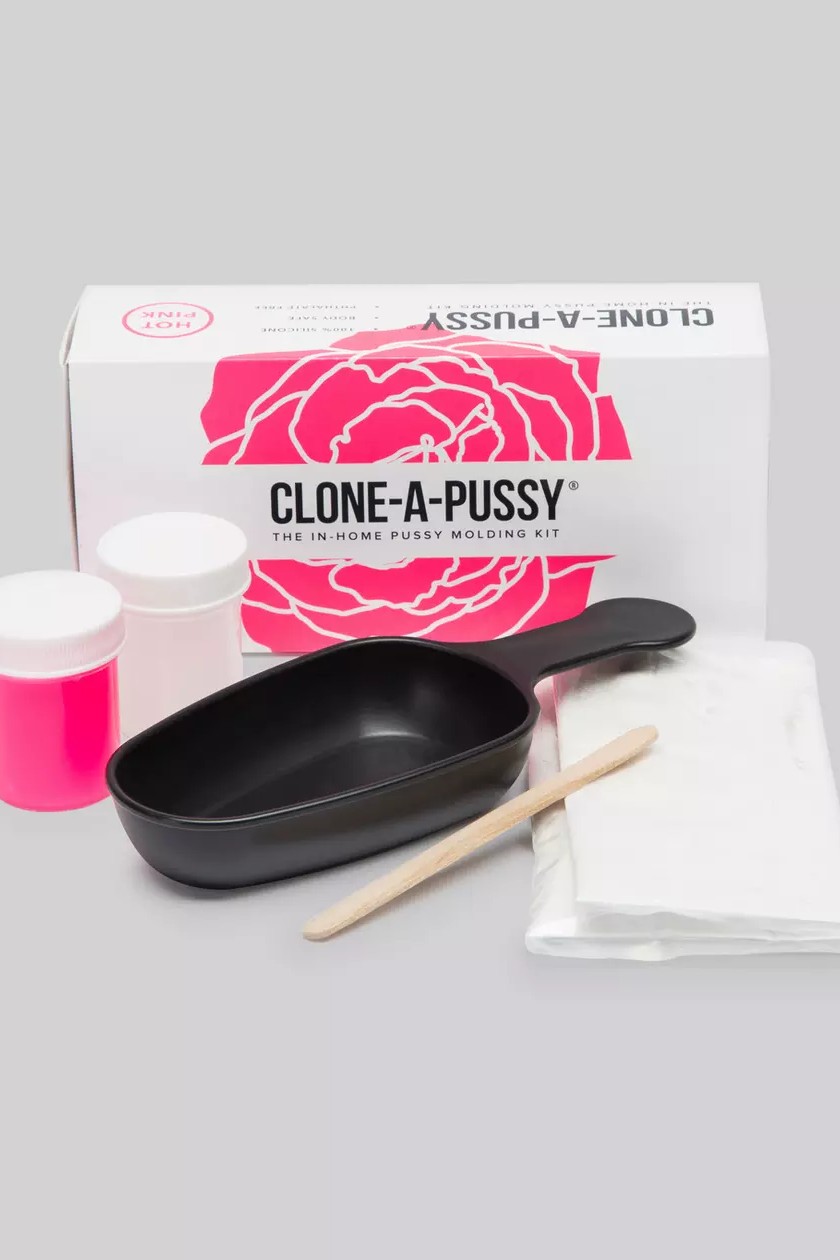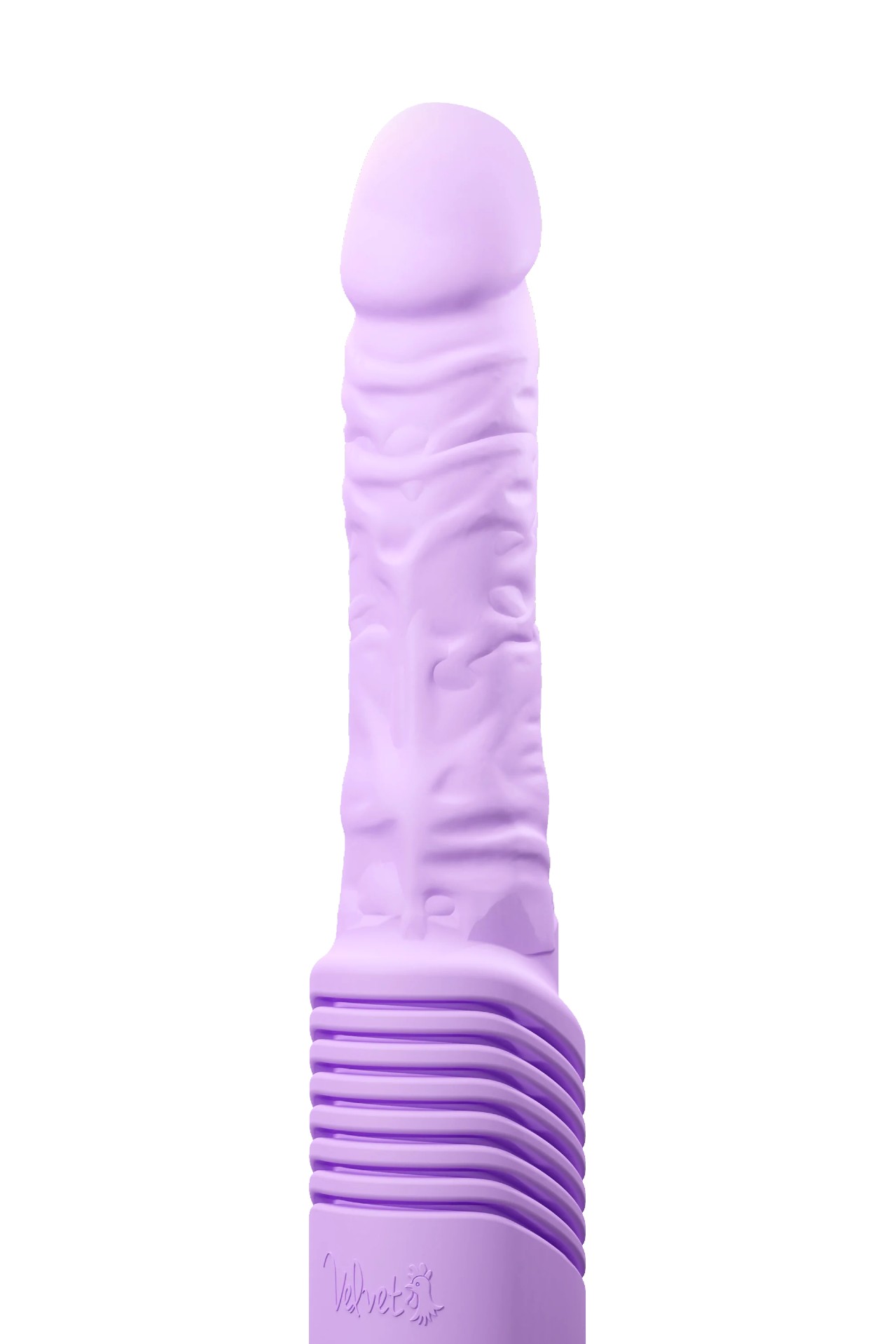Why Homemade Sex Toys Are Always a Bad Idea
Safety is sexy.


Every year, from online searches to Reddit threads, people comb through the internet for advice on how to make their own sex toys or use household objects for pleasure. In fact, I remember being in high school and reading comments in an online forum advising women who weren't yet sexually active to use cucumbers and zucchinis as dildos in order to "prepare themselves" for the sensation of a penis. Luckily, another commenter stepped in and said this was a terrible idea, warning readers that such experimentation could cause a number of injuries and infections.
Plus, if you're nervous about having penetrative sex for the first time, remember that your focus should be on finding a partner who prioritizes your consent, comfort level, and preferences rather than on physically "preparing."
Over the years, that Reddit thread stuck with me. I've been haunted by the idea that people feel compelled to use household objects or unsafe DIY methods to achieve sexual pleasure because of concerns such as privacy and affordability. And, because the sexual education in the United States generally leaves much to be desired, women, in particular, are never advised against these dangerous methods—and are even encouraged to engage in them.
For that reason, I've contacted sexologists, doctors, leaders of sex toy companies, and other experts to unpack why you shouldn't use DIY or household items as sex toys and what you can do instead. No matter what your financial background, household environment, experience level, or other personal needs are, safe and affordable pleasure is always within reach.
Why Homemade Sex Toys Are Dangerous
"In a world where we are encouraged to save money, reduce waste, and to upcycle, I can see why for some the idea of making their own sex toy seems like a good idea," admits Bonny Hall, Global Product director of online sex toy retailer Lovehoney. "However, it really isn't! There is far more to a sex toy than just the shape, and using household objects is definitely a risk that is not worth taking."
Dr. Amanda Olson, a pelvic floor specialist and President & Chief Clinical Officer of Intimate Rose, says that there are several reasons this behavior is risky, the first having to do with materials. "Many materials can cause infection and injury to the vaginal tissue. When selecting materials many people are unaware of the required safety needs in materials and of their own anatomy," she says, adding that "additionally, looking for safety measures such as FDA-cleared silicone is important."
Hall, who plays a major role in sex toy development, agrees, informing us, "When we are creating sex toys, we are using materials that are body safe, such as silicone, ABS plastics, glass, and aluminum, to name a few. Each of the materials are tested in independent labs and verified for safe use. When you pick up a household object that was not designed to be used intimately, there is a risk that the material is not safe. This is also very relevant if someone chooses to use a food item that can also risk introducing unwanted bacteria into the body."
Stay In The Know
Get exclusive access to fashion and beauty trends, hot-off-the-press celebrity news, and more.
Indeed, Angie Rowntree, founder and director of ethical porn site Sssh.com, says that "your local Emergency Room staff thanks you in advance" for sticking to medical-grade, body-safe materials rather than experimenting with common-yet-dangerous objects such as "veggies, cellphones, [and] staplers."
Beyond potentially unsafe materials, Dr. Olson adds that when it comes to using food or DIY contraptions as sex toys for penetration, "they may create something that breaks or lodges into the vagina that requires assistance removing." Pieces of vegetable, for instance, may become lodged near the cervix, while hand-carved wooden objects may result in painful, hard-to-reach splinters.
Plus, Dr. Olson warns that "if [you] create something that is too large for [your] vaginal opening," it is possible to "injure [your] pelvic floor muscles or vaginal tissue." Professional, medical-grade sex toys, on the other hand, are constructed in a variety of lengths, girths, and textures, so you can choose a completely body-safe option that suits your preferences and experience level.
Finally, when it comes to anal stimulation, the risks of using a DIY or homemade toy are especially severe. "Our rectum is a vacuum," Marla Renee Stewart, MA, sexologist and sexpert for Lovers, reminds us. So if you use an object or dildo on your rectum that isn't specifically designed for anal penetration, the object "will go in and have a hard time coming out."
Hall says that professionals at Lovehoney call this "the 'prevention of retention' rule," and they spend a great deal of time on it during the research and development stage. "It is about ensuring that all toys can easily and safely be removed from the body," she says. "This is incredibly important for anal play where we ensure our plugs and pleasure toys have strong, flared bases. It is also key for the design of the Kegel and Love Eggs that require a secure and strong pull loop to remove them quickly and easily. Very few household objects will have these elements of design."
Below, check out a few products that these experts recommend in particular for those who wish to explore new sensations but aren't sure where to begin. And remember to lube up—especially if you're engaging in anal play!
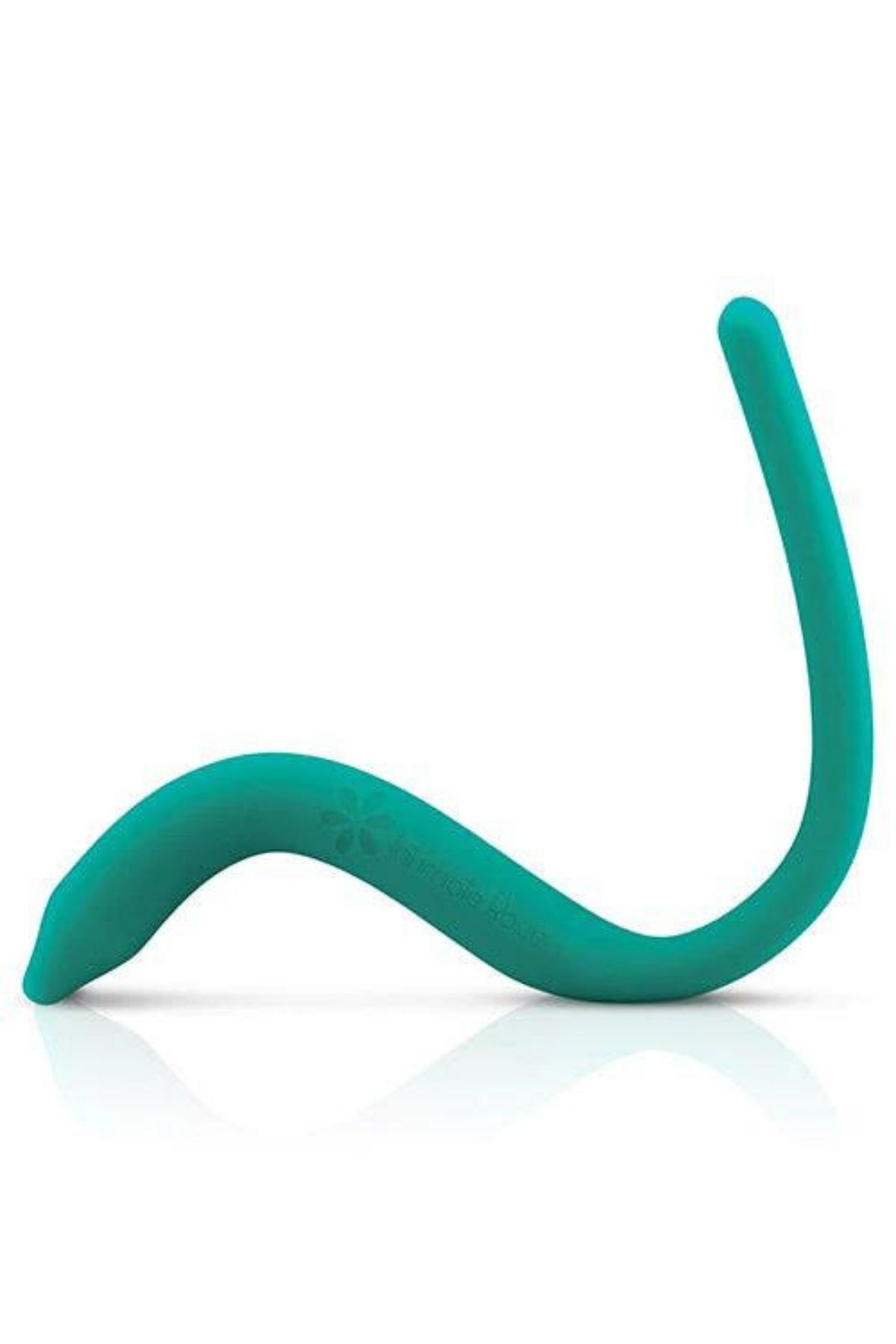
Dr. Olson advises that consumers read reviews of "existing sex toys and [to] analyz[e] their own needs and desires. They can explore how their body responds to different stimuli during self pleasure and search for a toy to replicate that." She recommends this toy, in particular, for exploration, saying, "The Intimate Rose Vibrating Wand is FDA compliant and can be used in many ways including as a sex toy and is safe to use."
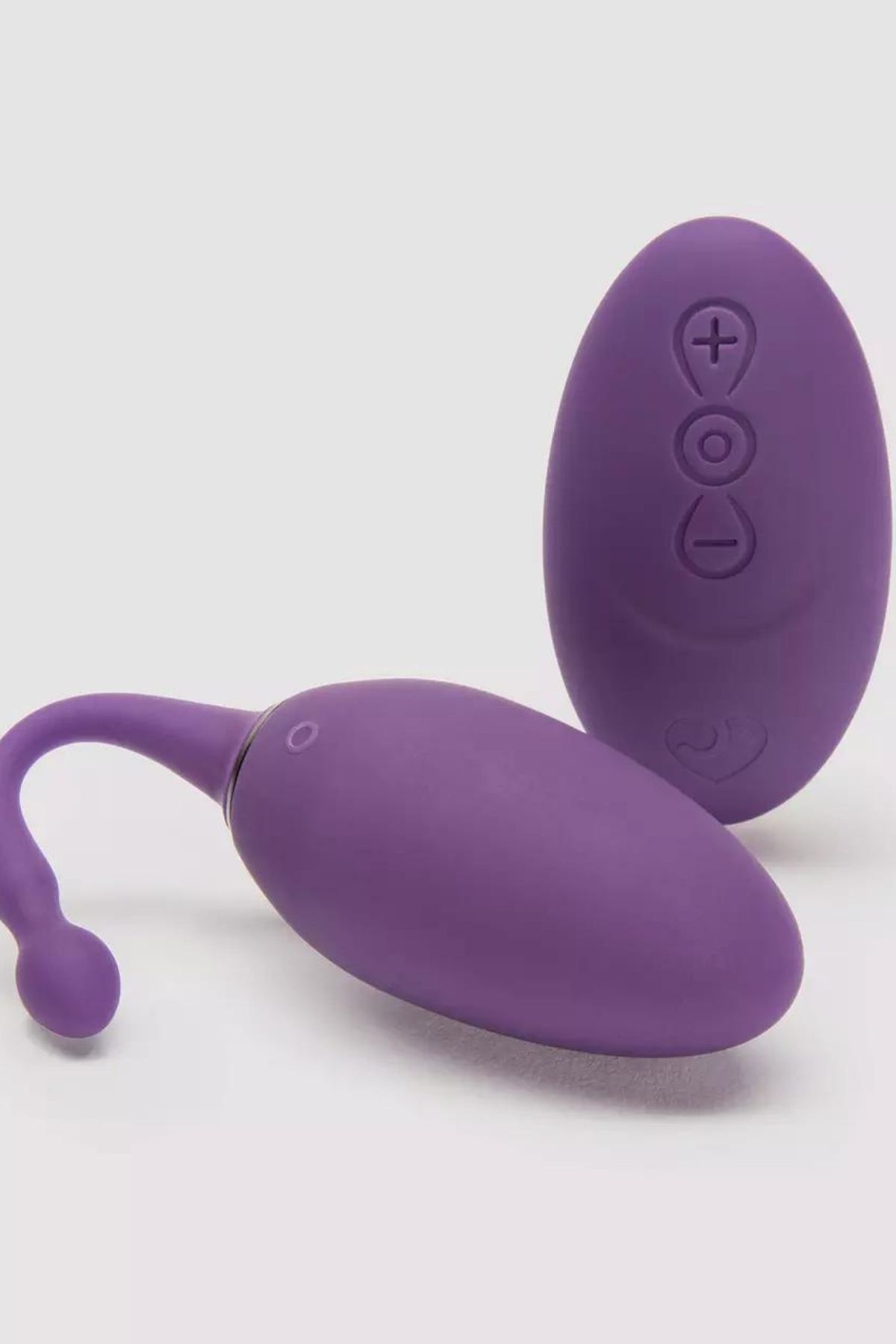
Bonny Hall recommends this egg vibrator for its strong pull loop that makes for easy insertion and removal. Toys like this are great for both pleasure and kegel exercises, making them ideal for beginners and experienced users alike.
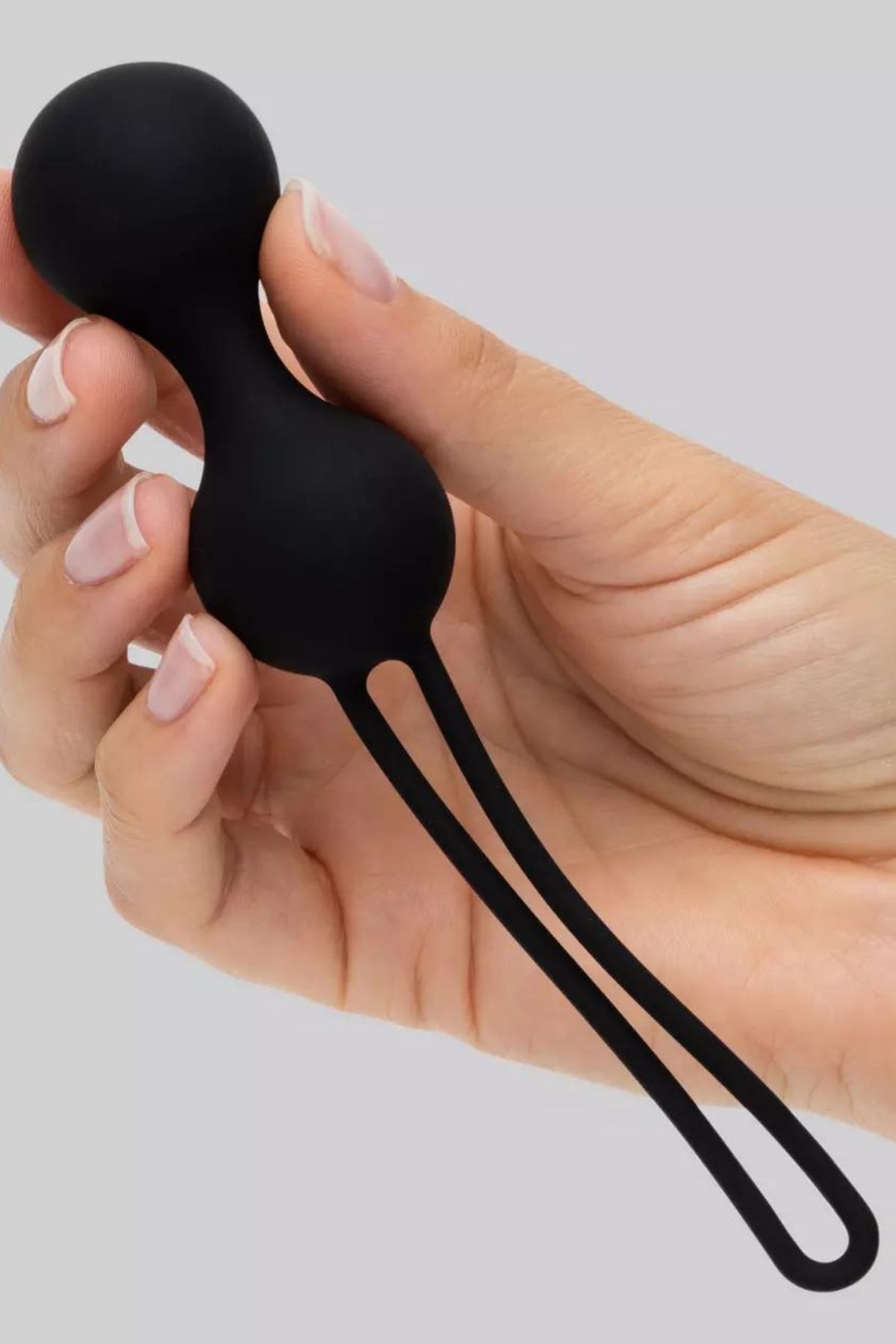
This, too, comes highly recommended by Hall as a product for pleasure and pelvic health. It features a long, sturdy loop so that you can adjust and remove it from your body with ease.
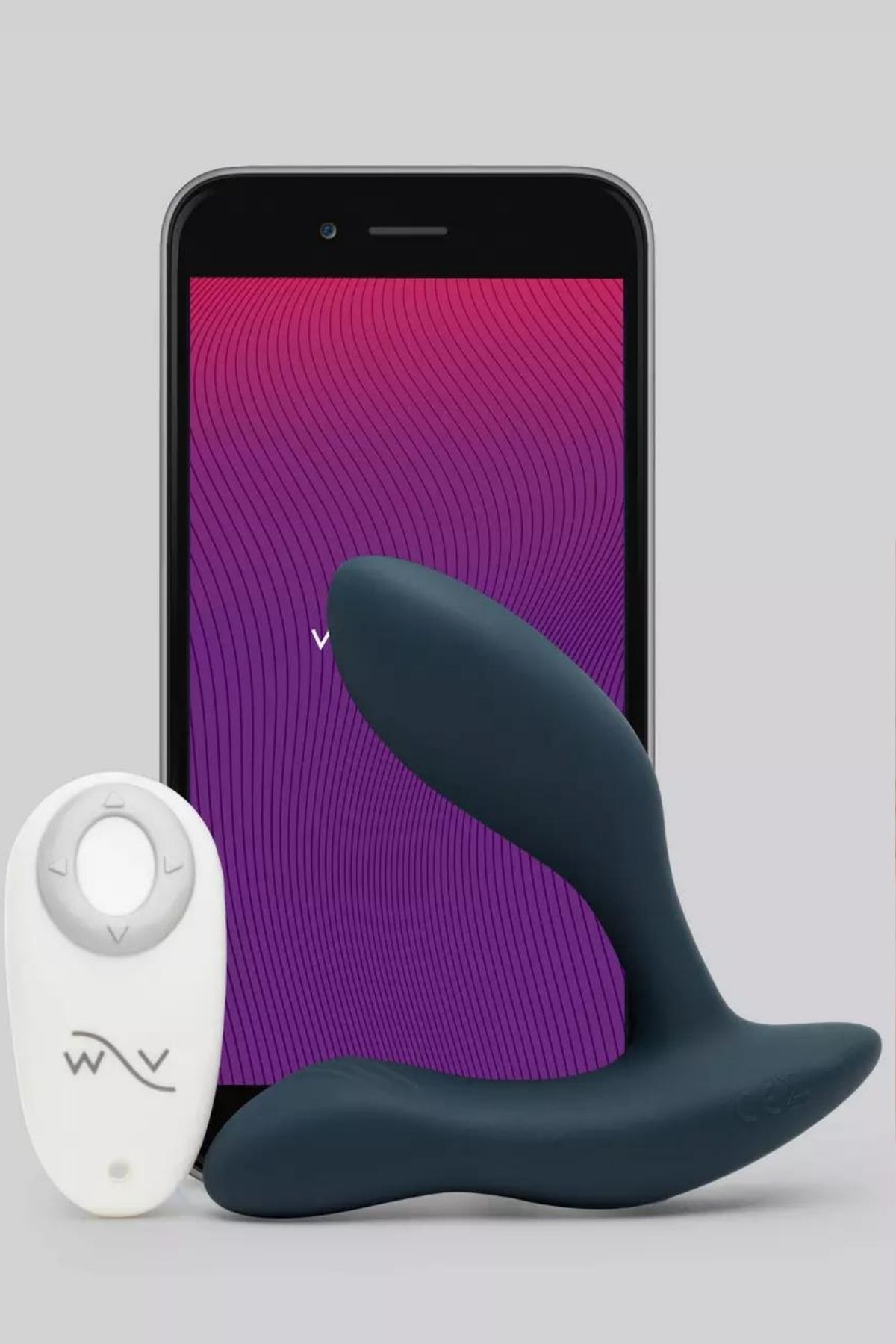
If you enjoy anal stimulation, look into products like this one, from luxury sex toy brand We-Vibe. Hall recommends this item for its high-quality materials and flared base, so you can engage in solo or partnered anal play without worrying that the object is going to get stuck in your rectum.
Cost-Effective Sex Toys
Let's face it: Sex toys can be expensive, particularly if they're remote-controlled and/or luxury toys. For that reason alone, it's understandable that one might be tempted to reach for something in their home or their fridge—or to make something themselves—rather than invest. However, keep in mind that medical bills ultimately cost far more than a good sex toy. Plus, your comfort, safety, and health are always worth investing in.
If you're still concerned about costs, there are also a number of safe, affordable sex toy options out there. Bonny Hall also reassures, "At Lovehoney, we have curated a product range that has something for everybody, at every price point, to ensure that you don't have to resort to the risk of homemade sex toys."
Keep scrolling for some of the best budget options.
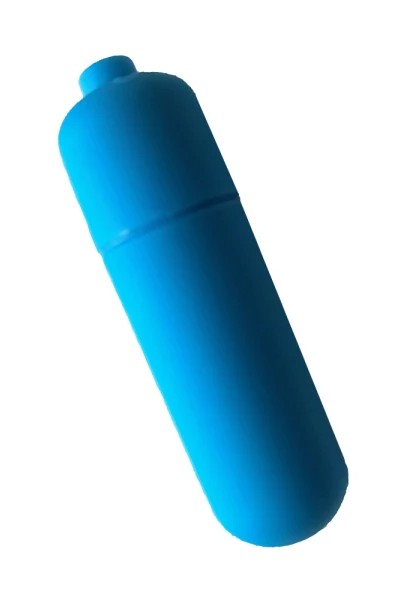
Heaps of reviews say that this vibrator is excellent for beginners. Plus, its compact size makes it great for travelling, exploring one's genitalia, and targeted stimulation.
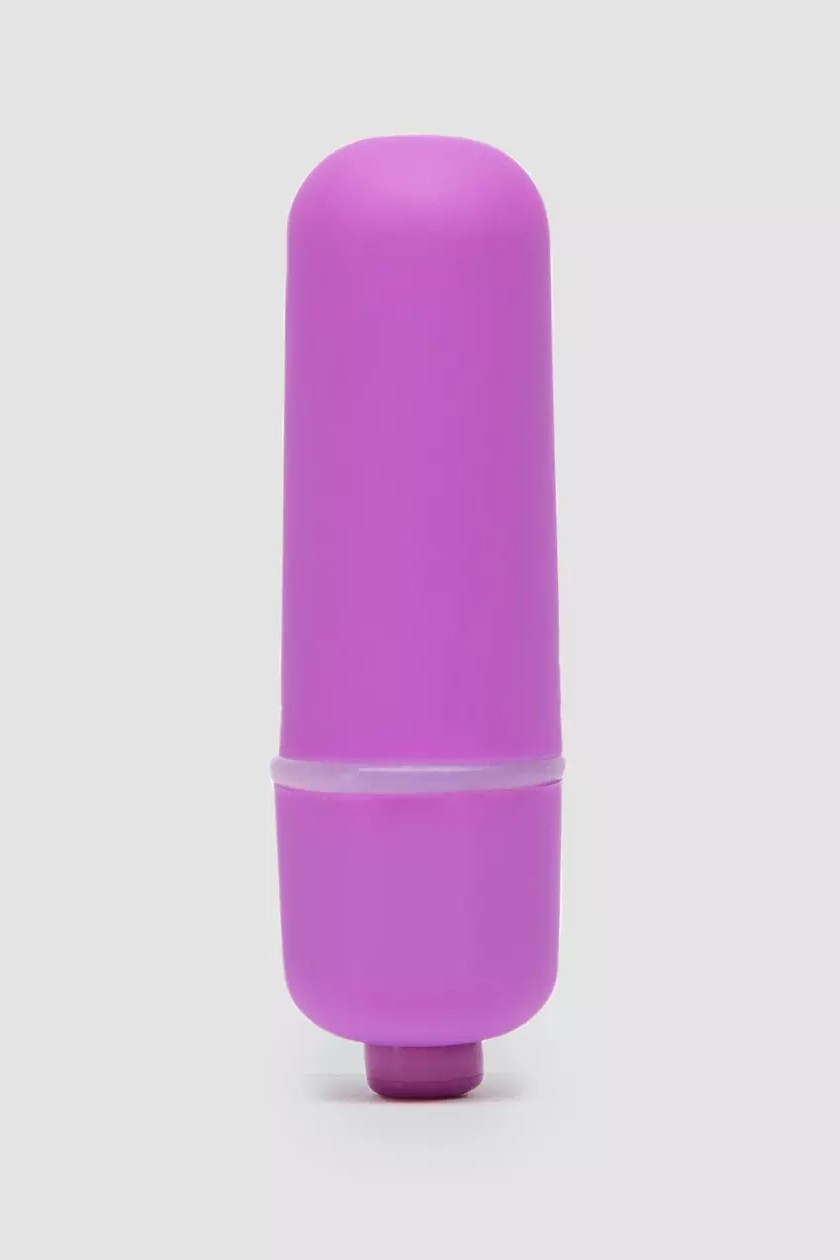
According to reviews, not only is this vibrator very small (read: subtle!), but it also packs a surprising punch. Users caution that it does have a 30-minute battery life, though, so be sure to keep it charged.
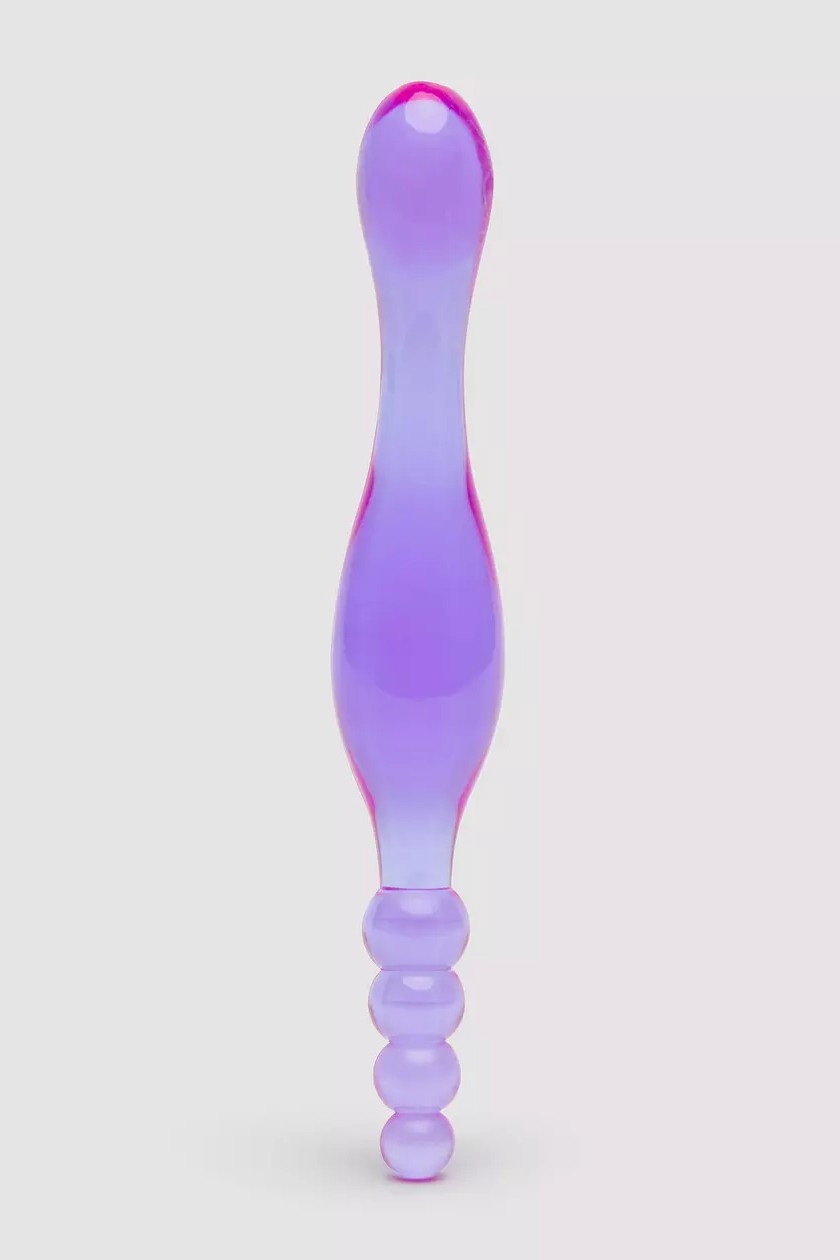
This anal prober comes with two head options, which is perfect for people who are looking to begin experimenting with anal stimulation. One customer raves at what a great deal this toy is, commenting that "the design of the toy makes sure you feel a lot of extra sensations."
Sustainable Sex Toys
The environmentally conscious among us may be tempted to use household items as dildos because of concerns about throwing toys away. Indeed, you should throw away your toys if they begin to smell and should avoid using silicone lube with silicone toys, because the lube can cause the toy to break down. However, you can dramatically increase the shelf life of your toy by taking good care of it. Bryony Cole, a sextech expert for toy brand Zumio, advises, "Keeping your toys clean is important for toy lifespan (and your health!). Look for organic, water-based anti-bacterial cleaners that will be kind on your body and the sex toy. It’s always good to check your products, as some toy cleaners aren’t suitable. Ideally, opt for mild soap and warm water and you will be set."
Plus, there are a number of glass and metal sex toy options that don't break down over time and have a longer lifespan than their silicone counterparts. Below, check out some of our favorite sex toy cleaners as well as glass and metal sex toys so you can look out for your pleasure and the environment at the same time.
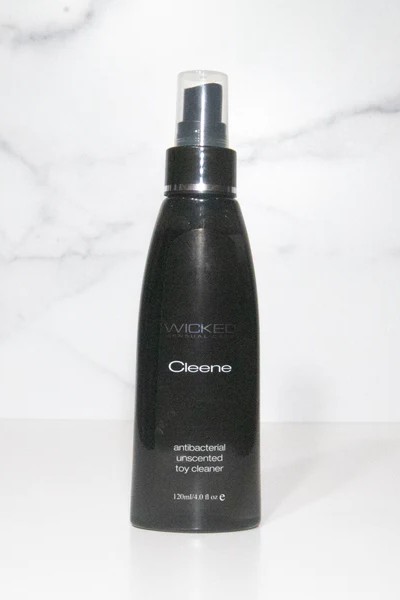
This fragrance-free, paraben-free option is formulated to clean all toys, no matter what they're made of. Plus, it's vegan, cruelty-free, and certified by PETA!
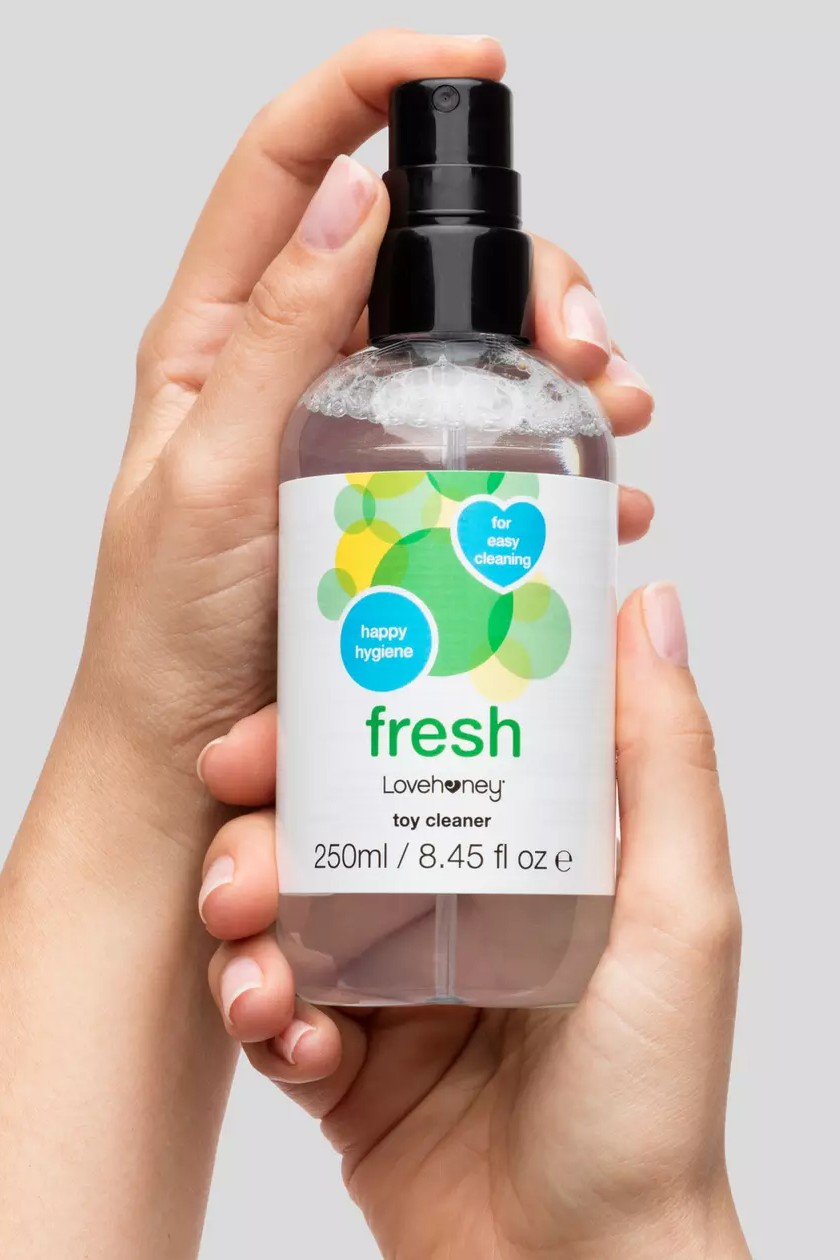
I have this cleaner, and it's so easy to use. Reviewers agree, with one saying that it "lathers so nice I sort of wish it was a body wash."
Subtle Sex Toys
Many people feel nervous about ordering sex toys because they live with their families of with neighbors or roommates who would judge them for using sex toys. Living situations like thse understandably intensify the urge to use a household object as a sex toy, but Dr. Olson reminds us that doing so, as aforementioned, can cause, "infection of the tissue, injury to the cervix [and] possible injury to the external anatomy (vulva) or the vaginal tissue itself."
If you're nervous about having an unwanted, uncomfortable conversation upon ordering a sex toy, look into brands like Lovehoney and Babeland, which use unassuming boxes and return addresses when they send their products. You can also invest in subtle sex toys that don't look like toys at all, including the ones below.
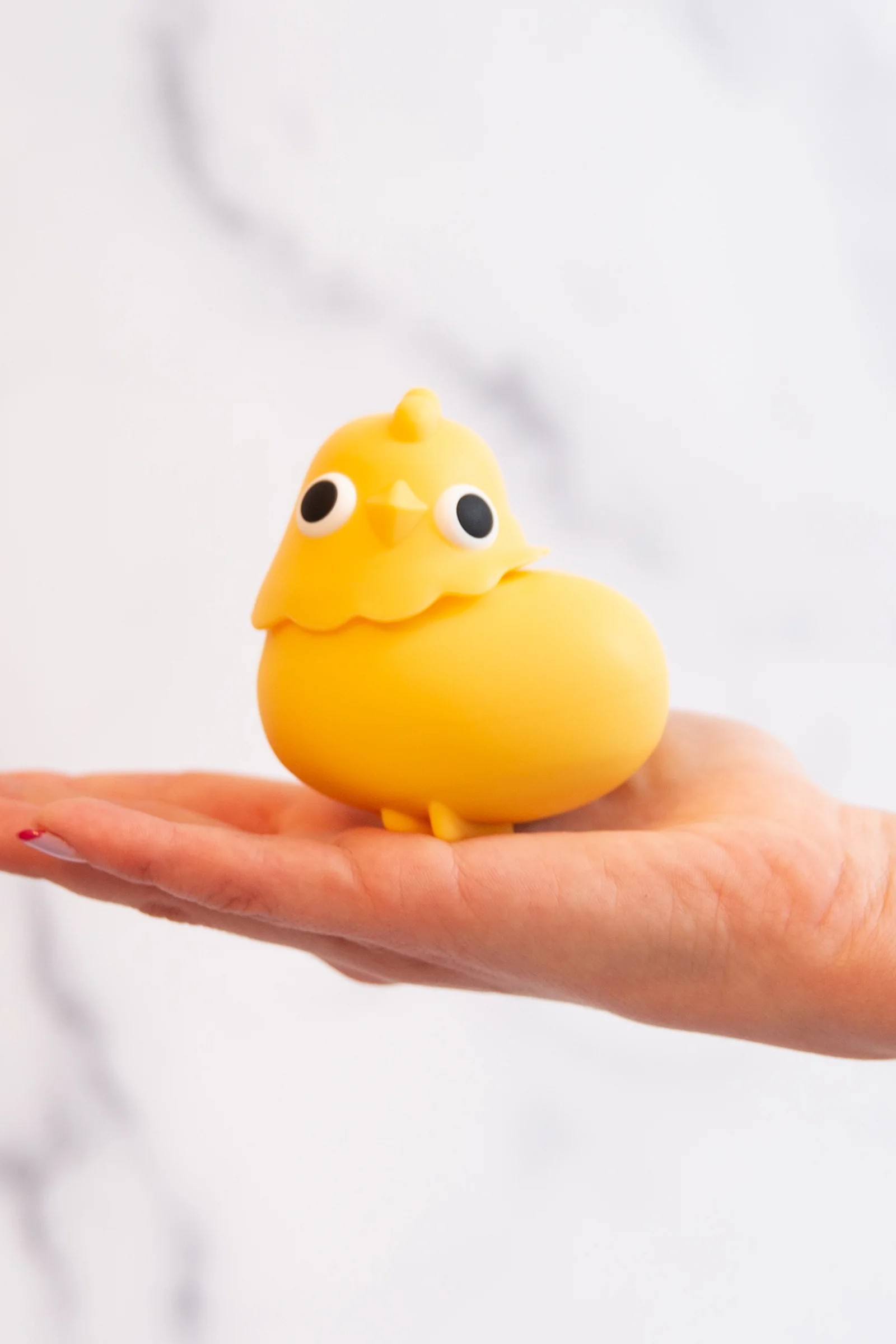
Emojibator strives to make emoji-inspired toys that don't look like traditional sex toys in order to prevent beginners from feeling intimidated. And just because this vibrator isn't adorable, doesn't mean it isn't effective—one reviewer refers to it as their absolute favorite toy, calling it "a must-have for your pleasure."
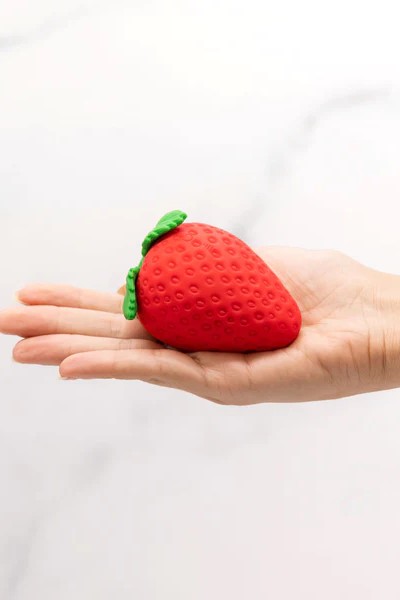
Another fabulous option from Emojibator, this strawberry-shaped toy fits in the palm of your hand and provides both vibration- and suction-based pleasure. Whether you take it with you on the go or leave it out in your room, when it comes to this berry's function, the world will never know.
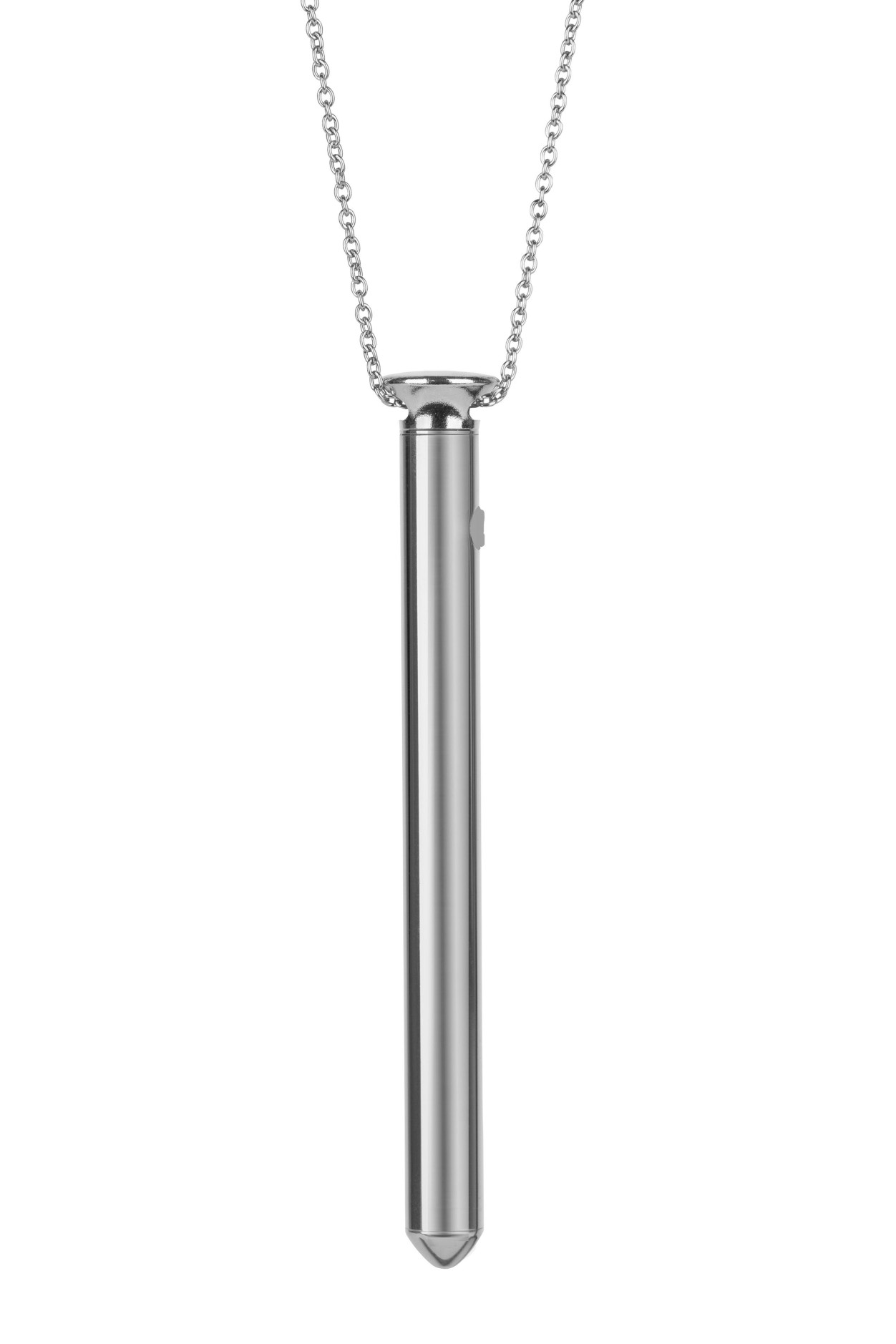
Wear this vibrator around your neck, and everyone will assume it's a modernist statement necklace. For the daring, it's also a sexy way to flirt with your beau: Wear this toy around your neck to dinner, and they'll be stunned to distraction. Several reviewers refer to it as "discreet" yet effective, and one says that it's perfect for on-the-go pleasure or travel.
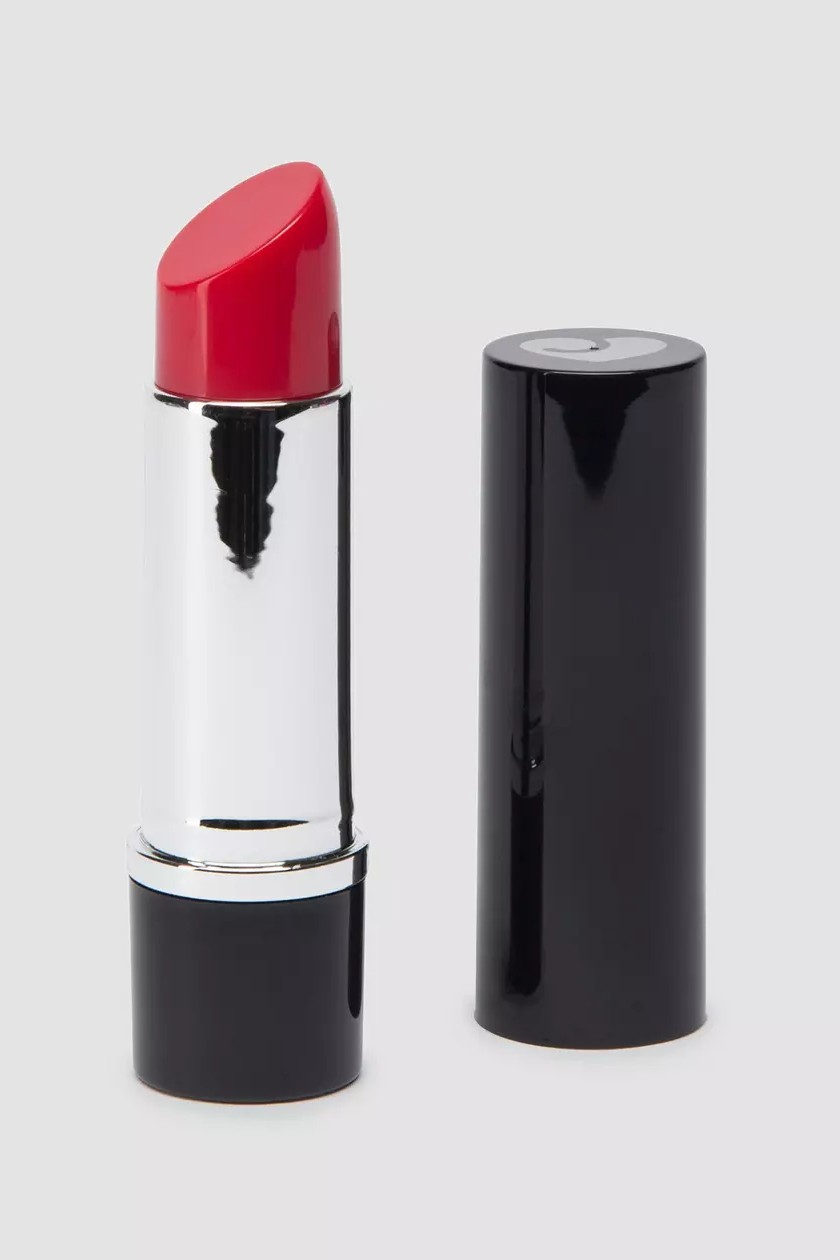
This vibrator is tiny, discreet, and so fun. The lipstick shape is perfect for sticking in a handbag, and although it's small, it packs quite a punch. Its reviews are far more focused on its effectiveness than on its appearance, with one customer writing, "I was so surprised by how strong this little thing was. It is actually more powerful than my bullet!"
Creative Sex Toys
Many people have strong creative urges, and sometimes one's creative urges align with their sexual ones. However, certified sex educator Javay Frye-Nekrasova reminds us, "There is a lot of research and education that would need to be done about toy materials to make sure you are creating a body-safe dildo [or any sex toy], so if you don't want to essentially become a chemist and engineer you can purchase a product made to allow you to create dildos at home."
These safe DIY products include penis casting kits, which Angie Rowntree adds is "definitely a fun date night and very simple to use, and the result is a body-safe silicone dildo that can even be tricked out with vibration if you want. Additionally, they make this kit in a variety of skin tones, or even fun 'glow in the dark' blues or greens."
A number of brands also allow you to customize your sex toy via colors and add-ons before you order it, so you can have customized, creative experience without hurting yourself in the process.
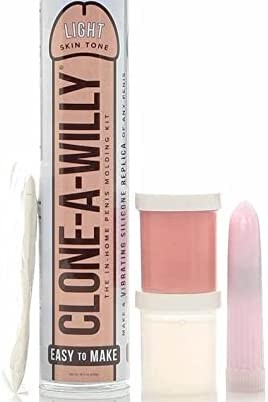
Angie Rowntree recommends DIY dildos "as long as you use an appropriate kit and follow the directions. We love the ‘Clone a Willy’ silicone penis casting kit." Frye-Nekrasova also recommends this kit if you're interested in making your own dildo at home.
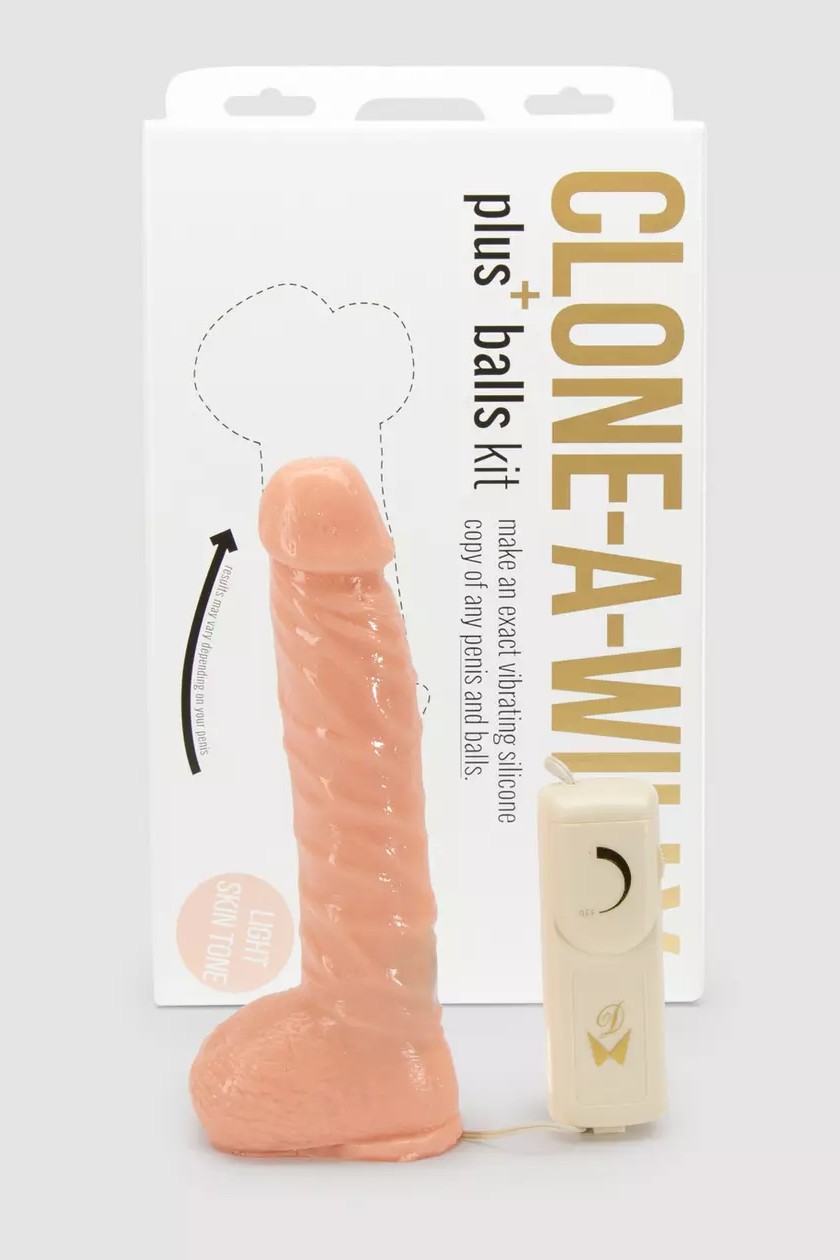
Like the original kit, this product promises to make a vibrating replica of any penis—but this model also allows you to clone their testicles. Reviewers caution that the process is messy and that the person with the penis needs to maintain an erection throughout the cloning process, but in the end, it's a fun and fruitful activity between partners—so long as you both maintain a sense of humor about it.
For more, visit our Sexual Wellness section, where we unpack topics around consent, kink, sex toys, and more so you can have your safest and very best sexperiences yet.

Gabrielle Ulubay is a Beauty Writer at Marie Claire. She has also written about sexual wellness, politics, culture, and fashion at Marie Claire and at publications including The New York Times, HuffPost Personal, Bustle, Alma, Muskrat Magazine, O'Bheal, and elsewhere. Her personal essay in The New York Times' Modern Love column kickstarted her professional writing career in 2018, and that piece has since been printed in the 2019 revised edition of the Modern Love book. Having studied history, international relations, and film, she has made films on politics and gender equity in addition to writing about cinema for Film Ireland, University College Cork, and on her personal blog, gabrielleulubay.medium.com. Before working with Marie Claire, Gabrielle worked in local government, higher education, and sales, and has resided in four countries and counting. She has worked extensively in the e-commerce and sales spaces since 2020, and spent two years at Drizly, where she developed an expertise in finding the best, highest quality goods and experiences money can buy.
Deeply political, she believes that skincare, haircare, and sexual wellness are central tenets to one's overall health and fights for them to be taken seriously, especially for people of color. She also loves studying makeup as a means of artistic expression, drawing on her experience as an artist in her analysis of beauty trends. She's based in New York City, where she can be found watching movies or running her art business when she isn't writing. Find her on Twitter at @GabrielleUlubay or on Instagram at @gabrielle.ulubay, or follow her art at @suburban.graffiti.art
-
 Princess Anne's Unexpected Suggestion About Mike Tindall's Nose
Princess Anne's Unexpected Suggestion About Mike Tindall's Nose"Princess Anne asked me if I'd have the surgery."
By Amy Mackelden Published
-
 Queen Elizabeth's "Disapproving" Royal Wedding Comment
Queen Elizabeth's "Disapproving" Royal Wedding CommentShe reportedly had lots of nice things to say, too.
By Amy Mackelden Published
-
 Palace Employees "Tried" to Get King Charles to "Slow Down"
Palace Employees "Tried" to Get King Charles to "Slow Down""Now he wants to do more and more and more. That's the problem."
By Amy Mackelden Published
